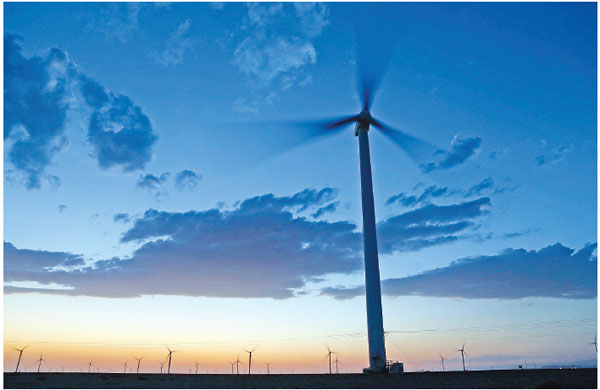ADB holds forum to underline innovative technology in clean energy future for Asia


MANILA - Technology and innovation can play a significant role in Asia and the Pacific's push towards a low-carbon energy future, with the potential to provide countries in the region with universal access to cleaner and more affordable energy sources, according to participants of an international forum held at the Asian Development Bank (ADB) headquarters.
The Asia Clean Energy Forum (ACEF) 2018, co-hosted by ADB, the United States Agency for International Development (USAID), the Korea Energy Agency, and the ADB Institute, is being held from Monday under the theme "Harnessing Innovation to Power the Future."
The forum brings together over 1,000 participants from more than 50 countries, including entrepreneurs, policymakers, financial institutions, NGOs, and academia.
ACEF began in 2006 as an annual event to provide a platform for collaboration in promoting clean energy in Asia and the Pacific.
Topics being discussed during the week-long event include future energy innovations such as energy in buildings, renewable energy in urban settings, decentralized power grids, health and environmental benefits of energy efficiency, clean cooking, new business models, and digital transformation and innovations.
"New technologies such as smart grids, large-scale battery energy storage, renewable energy-based microgrids with storage, waste-to-energy, carbon capture and storage, and artificial intelligence have huge potentials to accelerate the clean energy transformation," ADB President Takehiko Nakao said.
"But technology by itself is not enough. Projects with advanced technologies must be accompanied by viable business models, stable regulation, and smart policies to deploy the technologies," Nakao added.
Despite Asia and the Pacific's rapid growth over the past few decades, the ADB said there remain large development challenges.
In the energy sector, it said 440 million people still lack access to electricity in developing Asia.
Securing energy access for these people, most of whom live in remote rural areas and islands, will depend on innovative technologies, the ADB said.
To showcase creative solutions to these challenges and promote the next generation of clean energy entrepreneurs, ADB launched in 2017 the New Energy Leaders Program.
"Support for clean energy forms a cornerstone of ADB's efforts to combat climate change," the Manila-based bank said, adding that clean energy offers a win-win solution of mitigating greenhouse gas emissions while meeting developing Asia's need for new and expanded energy sources.
In 2017, ADB said it invested over $2 billion in climate mitigation finance in energy.
In Sri Lanka, ADB is providing $200 million for a 100-megawatt wind power generation project, which is helping to diversify the country's power generation through clean, renewable energy sources.
In the Philippines, ADB provided technical assistance and grant funds for a solar-diesel mini-grid to provide 24-hour access to electricity on Cobrador Island.
In China, ADB provided $250 million in loans to a joint venture of Chinese and Icelandic companies to expand district heating services based on geothermal technology.




































